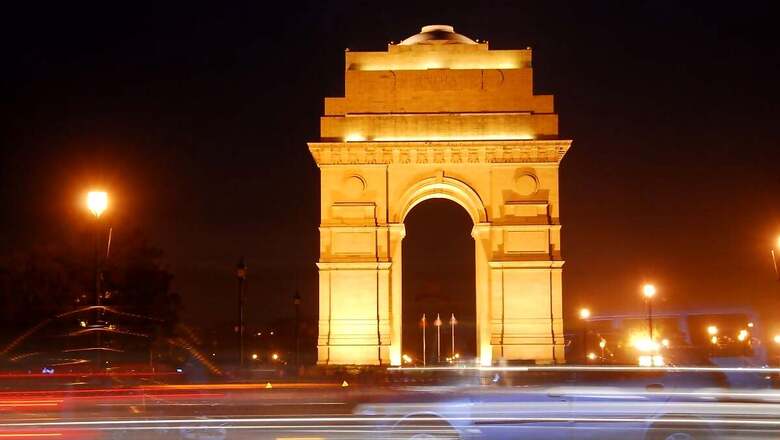
views
Both houses of Parliament have now passed the Government of National Capital Territory of Delhi (Amendment) Bill, 2021. Accordingly, the term ‘Government’ in Delhi shall now mean the Lieutenant Governor, who is appointed by the government at the Centre. Further, the Chief Minister of Delhi will now need permission from the Lieutenant Governor before any executive action. As expected, the reactions to this bill have been along shrill partisan lines. The opposition has labelled it ‘death of democracy,’ as with any number of things these days. On the other hand, the ruling BJP argues that the national capital is a special case, not comparable to any other state.
On the face of it, Arvind Kejriwal has a point. His government has been elected by roughly 2 crore people of Delhi. How can the central government pass a bill and seemingly take it all away? Where does this leave the people of Delhi and their mandate?
The simplest way to generate informed opinion around this issue is to look at what happens around the world. This is not a new debate, either in India or anywhere else. All federal democracies have to deal with the same exact question: how to govern their capital city? The capital city cannot be inside any state and the federal government cannot possibly be under a state government. It must belong to everyone equally as well as follow the natural principles of local self-government.
The problem gets more complicated because capital cities tend to attract large populations. Washington DC has more people than some US states, but Washington DC is not a state. It has no governor, only a mayor. Almost tragically, DC gets to elect one member to the US House of Representatives, but that individual does not even have voting rights. The issue here has deep roots in the US constitution: members of the US Congress are to be elected by states. The capital cannot belong to any one state and therefore it cannot have any representation.
The same principle applies to other big federal democracies. In Canada, the federal capital is Ottawa, which is not part of any state. Unlike other states (called provinces), Ottawa does not have a premier, but remains at the level of a municipality. In Australia, every full state gets its own premier, but the federal capital Canberra does not. Mexico has 31 states, but Mexico City is not one of them. Their capital has a “head of government,” more similar to a mayor than the governors of any of the other states. According to the constitution of Brazil, their capital city Brasilia does not even get a mayor of its own. It should be noted here that the United Kingdom does not enter this discussion, for the UK has no states and no federal structure.
The debate everywhere is the same. On the one hand, the question of local self-government is raised. But the entire nation invests in building the capital, not just the people of one city.
In the case of India, this is even more so. The central government invests extensively in building the infrastructure of Delhi. This generates business, creates employment and brings people in. At a basic level, Delhi is home to a huge legion of well-paid central government employees. This brings in private businesses to cater to their consumer needs. Whether they are big builders or big corporates, everyone wants to be based around Delhi. Because there is always work to be done and everyone wants easy access to the seat of power. The collective effect of all these factors is what makes Delhi prosperous.
For instance, the All India Institute of Medical Sciences is based in Delhi. So is Delhi University. These top-class institutions are maintained by the central government. But for obvious reasons, the population of Delhi has much better access to them than people anywhere else.
The implications for law enforcement are even more ominous. Because Delhi is the capital, it becomes the natural target for anyone looking to make a point, whether by legal means or otherwise. During the last two winters, the capital came under siege from two different special interest groups. And who can forget the riots last year when Delhi was hosting the President of the United States? While the police in the capital is under the Union Home Ministry, it is a lesser-known fact that prosecutions in Delhi can happen only with the consent of the Delhi government.
When you consider the GNCTD (Amendment) Bill, two things are clear. First, both sides make good points, making it necessary to strike a balance. Second, when you look at international standards, it does appear that the bill is in line with the systems of government in other democracies with federal structure.
So where is the balance and which way is it tilted right now? Once the bill becomes law, it will certainly be challenged in court where the options would be weighed further. In the meantime, it would help to depoliticize the discussion, look around the world and have informed opinions.
Read all the Latest News, Breaking News and Coronavirus News here




















Comments
0 comment